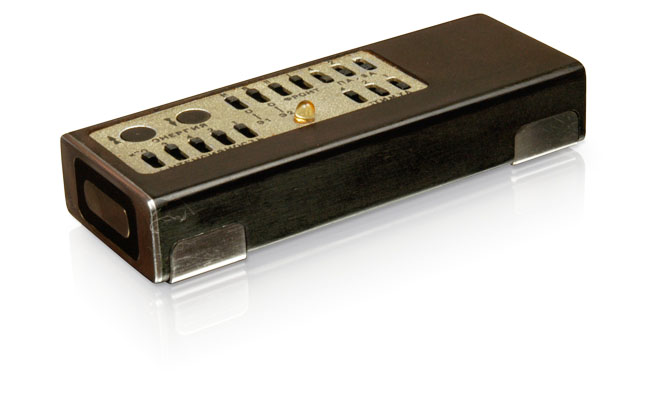ENS-03

The most successful model of all times and generations.
Casing was made of ebonite and assembled without a single screw. Faceplate — sandblasted aluminium.
Electrode: coaxial, rectangular shape (the rectangle had such good proportion of the sides that is still copied in all devices). This device had one more type of electrodes — “paravertebral” — in the form of two plates made of stainless steel. At the same time they served as locks of the casing. Socket for remote electrode became smaller.
Energy regulation: slide control, with “up” and “down” buttons. Two LEDs indicated energy and frequency. The frequency was set with digital binary code (like in ENS-02). Four different levels of “depth”. Time of stimulation and pause interval are also set with binary code, similarly to frequency.
Power supply: silver-zinc galvanic cells from military satellite-born systems. They could supply power to the device during 10 years of home use.
The most unique thing about this device is that it was assembled with three small-scale integration circuits — three inverters in one chip. And 96 diodes!
|